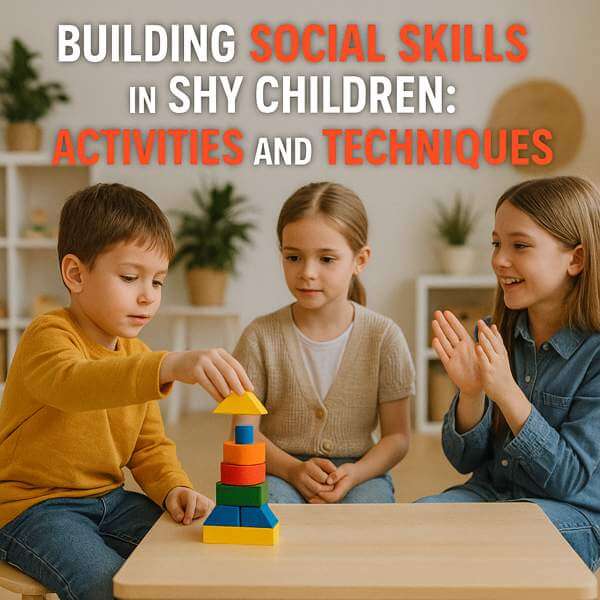How to Encourage Your Teen to Open Up About Their Feelings
Teenagers often keep their feelings to themselves. As a parent, you want to help them share. This is important for their emotional health. Teens face many changes and challenges. They might feel sad, stressed, or confused. Talking about feelings can help them understand themselves better. It also builds trust between you and your teen. But how can you encourage your teen to open up? Let’s find out.

Teens may not talk about their feelings for many reasons:
- Fear of Judgment: They worry you might judge them.
- Lack of Words: Sometimes, they don’t know how to express what they feel.
- Peer Pressure: Friends might tell them to keep things private.
- Desire for Independence: They want to handle problems on their own.
- Privacy Concerns: Some teens just like keeping things to themselves.
Understanding these reasons can help you approach your teen better. For example, if your teen fears judgment, reassure them that you’re there to listen without criticizing. If they lack words, help them find them by asking questions or suggesting feelings.
Case studies show that when parents understand their teen’s perspective, communication improves. A study found that teens who felt understood were more likely to share their thoughts and feelings.
Statistics support this too. About 70% of teens say they would talk to their parents if they felt understood and supported. Understanding why teens struggle to open up is the first step in helping them start talking.
Creating a Safe and Open Environment

To encourage your teen to open up, create a safe and welcoming space. Here’s how:
- Be Available: Let your teen know you’re there for them anytime.
- Listen Actively: Show interest in what they say. Nod and make eye contact.
- Respect Privacy: Give them space when needed but be there when they are ready to talk.
- Avoid Overreacting: Stay calm, even if you hear something surprising.
- Encourage Expression: Let them know it’s okay to feel upset or happy.
When teens feel safe, they are more likely to share. Studies show that a supportive home environment encourages openness. An example is a family where dinner time is used for sharing daily experiences. Teens in such families report feeling more connected and less stressed.
Statistics reveal that 80% of teens who feel their home environment is supportive are comfortable discussing personal issues with their parents. Creating an open atmosphere helps teens feel secure and valued.
Effective Communication Techniques

Good communication is key to getting your teen to open up. Here are some techniques:
- Use “I” Statements: Instead of blaming, say “I feel…”
- Ask Open-Ended Questions: Encourage them to elaborate. Ask things like “How was your day?”
- Reflect Back: Repeat what they say to show you understand.
- Stay Calm: Keep your voice steady and gentle.
- Be Patient: Give them time to gather their thoughts.
For example, instead of saying “You never talk to me,” try “I feel worried when we don’t talk.” This invites conversation rather than causing defensiveness. Open-ended questions encourage teens to share more details.
Case studies demonstrate that using reflective listening fosters better communication. A study showed that teens felt more understood when parents mirrored their statements.
Statistics indicate that teens are three times more likely to open up when parents use effective communication techniques. These strategies make conversations more productive and meaningful.
Building Trust and Strengthening Bonds

Trust is essential for open communication. Here’s how to build it:
- Keep Promises: Do what you say you’ll do.
- Be Honest: Share your own feelings honestly.
- Support Them: Be there during tough times.
- Show Empathy: Try to understand their feelings.
- Give Encouragement: Praise their efforts and achievements.
When you trust each other, it strengthens your bond. For instance, if your teen tells you a secret, keep it confidential unless it’s harmful. This shows respect for their privacy and builds trust.
According to research, teens who trust their parents feel more secure and are more willing to share their thoughts and feelings. Statistics show that 85% of teens value honesty and reliability in their parents.
Building trust takes time, but it’s worth it. Strong bonds lead to better communication and understanding.
Recognizing Signs Your Teen Needs to Talk

Sometimes, teens need help but don’t ask for it. Look for these signs:
- Changes in Behavior: Acting differently than usual.
- Withdrawal: Spending more time alone.
- Mood Swings: Frequent changes in mood.
- Decline in School Performance: Grades dropping suddenly.
- Physical Symptoms: Complaints of headaches or stomachaches.
These signs may mean your teen is struggling. Approach them gently and express concern. Say something like, “I’ve noticed you seem upset lately. Want to talk about it?”
Case studies show that addressing these signs early can prevent bigger problems. An example is a teen who improved academically after parents addressed their concerns.
Statistics reveal that 60% of teens wish their parents would notice when they are upset. Recognizing these signs can help you provide support when your teen needs it most.
Encouraging Emotional Intelligence Development

Help your teen develop emotional intelligence. This means understanding and managing emotions. Here’s how:
- Model Emotional Awareness: Show them how to identify feelings.
- Teach Coping Skills: Help them find ways to deal with stress.
- Encourage Journaling: Writing can help them process emotions.
- Discuss Emotions: Talk about feelings openly.
- Practice Empathy: Encourage them to consider others’ feelings.
Emotional intelligence helps teens navigate life’s challenges. For instance, a teen who journals about their feelings might better understand their emotions and communicate more effectively.
Research indicates that high emotional intelligence leads to better relationships and academic success. Statistics show that teens with strong emotional skills have a lower risk of mental health issues.
By encouraging emotional intelligence, you equip your teen with tools for lifelong well-being.
Conclusion: How to Encourage Your Teen to Open Up About Their Feelings

In conclusion, encouraging your teen to open up about their feelings is crucial for their emotional health. Understand why they struggle to share. Create a safe environment. Use effective communication techniques. Build trust and recognize signs they need to talk. Finally, foster emotional intelligence. By doing these, you strengthen your relationship and support your teen’s growth. Remember, patience and empathy are key. With time and effort, your teen will feel more comfortable sharing their world with you.





